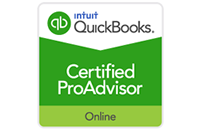We try to give our children all the tools that they need to succeed. We teach them about communication, math, history, and science, but we often leave out one of the most important topics: financial literacy! What is it about money that makes people become awkward and quiet? Well, if we’re going to better prepare future generations for the financial hurdles ahead, we need to start talking about it openly. Starting with these subjects:
Start Saving Early
Part of the problem is that many people wait until they’re officially “on their own” to start their savings. Well, take it from us, it’s a lot easier to save money when you don’t have to pay bills every month! In reality, children can start putting money away—and more importantly—managing it from a young age. Rather than depositing the money on their behalf and keeping it inaccessible until they reach their majority, you should try to involve your children in this process. Teach them to take out what they need now and save the rest for a rainy day.
Not only will this mentality ensure that they have money in the event of an emergency, but it also provides a real-world lesson on interest. Explaining the concept of compound interest to a child isn’t easy—we get it. But if you help them deposit this money and monitor its growth, it will leave a lasting impression. Plus, if they have continued access, they’re less likely to squander their savings as soon as they turn 18 and have their own bank account(s).
Use Credit Cards Sparingly
Credit card debt can be a hard lesson to learn in your 20s. It’s often one that people learn from experience, too. With climbing interest rates and payment deferrals, it’s surprisingly easy to let things get out of hand. Credit cards can be helpful tools to build credit and receive reward points, but teach your kids not to let large spending limits go to their heads! Just because the credit card company will let you borrow a certain amount doesn’t mean that you should borrow that much. Those same interest rates that help them save money can also work against them when it comes to credit—just much faster. Let them know that if they can’t reasonably plan to pay off their debt in a short amount of time, then they should probably put the credit card down.
Encourage them to explore their options with it comes to picking a card or financing larger purchases. They might be able to get a lower interest rate in the form of a personal loan that could save them several percentage points when it comes to interest. Many parents opt to add their children to one of their existing credit card accounts to help them build credit. However, if you’re simply letting them spend the money, as you pay it off, you’re not teaching them too much about financial literacy.
Hands Off the 401(k)
If your child has started a 401(k) in his/her 20s, you may think your work is done! But not so fast. Many millennials make the mistake of withdrawing these retirement funds early (whether on purpose or from a failed rollover attempt). Not only does this set their savings back, but it also leads to larger tax implications. The primary benefit of a 401(k) option is to allow benefits to grow tax-deferred. Once you touch the money, though, you lose this advantage. Plus, you have to pay an additional penalty of 10%! It could even cause them to move into a higher tax bracket for the year (depending on how large their account was), which leads to bigger losses.
While you don’t have to act as their financial advisor and police their every financial decision, start with baby steps. Teach your children to truly contemplate their financial decisions and consult the experts (not necessarily you) when they have money questions. Give them (some) responsibility over their finances at a younger age, so that they’re not forced to learn these skills by trial-and-error once they’re “on their own.” Don’t forget to set a good example, while you’re at it. Children are great copycats. If you want them to manage their money effectively, just show them how! And remember, we’re always here to assist you at ENSO Accounting.




